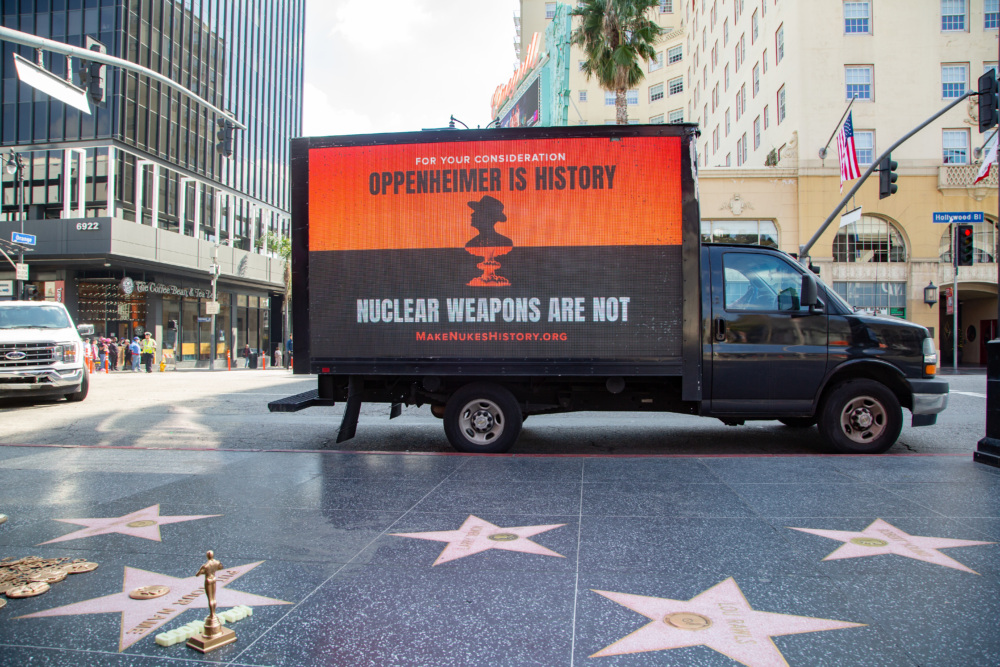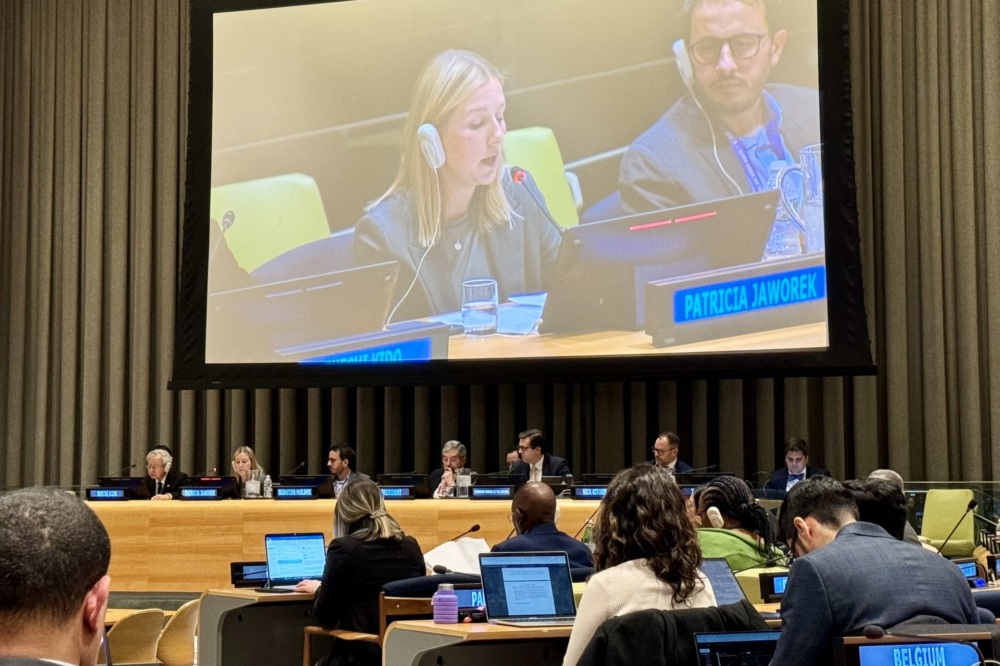
Hollywood Voices Sound Alarm on Nuclear Threat as Oppenheimer Sweeps the Academy Awards
NTI's #MakeNukesHistory campaign breaks through Oscars coverage to remind people that while Oppenheimer is history, nuclear weapons are not.
On Eve of Nuclear Security Summit, Faster, Broader Global Effort Needed to Secure All Nuclear Materials in Four Years
Would Greatly Reduce Chances of Terrorist Nuclear Attack
As more than 40 heads of state convene in Washington for President Obama’s nuclear security summit, a new report released today finds that despite significant progress, the world is not yet on track to meet the Administration’s goal of securing all stockpiles of nuclear weapons and weapons-usable nuclear materials within four years.
To meet the four-year objective President Obama set in Prague in April 2009, global leaders must redouble efforts following the upcoming nuclear security summit, shifting the global nuclear security effort onto a faster and broader trajectory, according to Securing the Bomb 2010, which can be found at www.nti.org/about/projects/Securing-bomb/
“Nuclear terrorism remains an urgent danger to world security, and securing nuclear weapons and materials within four years would dramatically reduce the risk,” said Associate Professor Matthew Bunn of Harvard University’s Project on Managing the Atom, the report’s author.
“Sustained White House leadership will be needed to overcome complacency and convince policymakers around the world to act. We need to hit the ground running in translating summit commitments into concrete actions on the ground to secure these stockpiles and keep them out of terrorist hands.”
Securing the Bomb 2010 highlights impressive progress: the United States has helped remove all highly enriched uranium (HEU) from nearly 50 facilities around the world; security and accounting upgrades have been completed at 210 of the weapons-usable nuclear material buildings in Russia and Eurasia of an estimated total in the range of 250; 19 countries have removed all weapons-usable nuclear material from their soil – with four countries having done so between President Obama’s Prague speech and early 2010.
Still, the threat looms large. Terrorists are seeking nuclear weapons, and the materials needed to make them are still housed in hundreds of buildings and bunkers in dozens of countries – many in urgent need of better security. There have already been 18 documented cases of theft or loss of plutonium or highly enriched uranium, along with incidents that provide striking evidence of security weaknesses – including a 2010 break-in by unarmed peace activists at a Belgian base where U.S. nuclear weapons are reportedly stored and a 2007 armed attack on a South African site housing hundreds of kilograms of HEU.
According to the report, the greatest risks are in Pakistan, whose small and heavily guarded stockpile confronts immense threats from both insiders theft and outsider attack; Russia, which has the world’s largest nuclear stockpiles in the world’s largest number of buildings and bunkers, security has improved dramatically but still has important weaknesses, and which faces substantial threats, particularly from potential insider thieves; and HEU-fueled research reactors around the world, which often have limited stocks of nuclear material, but generally have the weakest security measures in place.
Securing the Bomb 2010 calls for a greater sense of urgency, continuous engagement from Presidents and Prime Ministers, and clear metrics that give focus and traction to the global project.
“We are in a race between cooperation and catastrophe, and the pace of cooperation has accelerated. This report shows significant progress, but spells out clearly the required imperatives of a global effort,” said former Senator Sam Nunn, Co-Chairman of the Nuclear Threat Initiative, which commissioned the report. “It makes clear that we need worldwide understanding of the threat, the scope and urgency of the essential work, as well as clear goals and accountability for progress. The Obama-led nuclear security summit is extremely important in terms of putting a spotlight on the threat and the required global response.”
As part of meeting the President’s important four-year goal of securing nuclear weapons and materials globally, the report argues, it may be possible to cut in half the number of countries with weapons-usable nuclear material and all remaining countries could have clear and well-enforced rules requiring operators to protect nuclear stocks against a robust set of insider and outsider threats.
While these gains are possible, they can be accomplished only by expanding and accelerating current efforts. The report recommends several essential steps:
“The challenge is large and complex, but it is a finite task; it is doable,” said Professor Bunn. “Our biggest obstacle is not complexity; it’s complacency.”
Securing the Bomb 2010 is the only available source for “one-stop shopping” on all aspects of the effort to secure nuclear weapons and materials worldwide. Since NTI first commissioned this annual report from the Managing the Atom Project in 2002, the report and its recommendations have increased public awareness of the nuclear terrorism threat and helped spur increased government action to reduce nuclear dangers.
The Project on Managing the Atom, based at the Belfer Center for Science and International Affairs at Harvard’s John F. Kennedy School of Government, is Harvard’s principal research group focusing on nuclear weapons and nuclear energy policies. NTI is a Washington-based non-profit organization, focused on reducing the threats from nuclear, biological, and chemical weapons and materials.
###
Sign up for our newsletter to get the latest on nuclear and biological threats.
NTI's #MakeNukesHistory campaign breaks through Oscars coverage to remind people that while Oppenheimer is history, nuclear weapons are not.
NTI Program Officer Patricia Jaworek joined a panel discussion on the devastating humanitarian effects of nuclear weapons and shared her research on the subject.
NTI announces its third annual campaign to mark the anniversaries of the atomic bombings of Hiroshima and Nagasaki and create a shared moment where people come together to show their support for a world without nuclear weapons.

